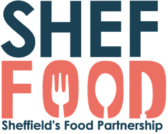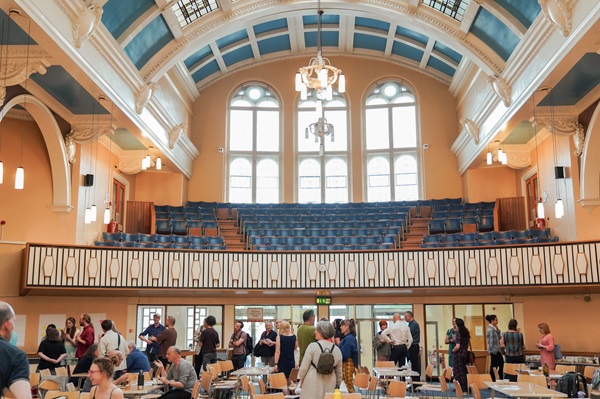Local partnerships play a crucial role in promoting sustainable food initiatives across the UK. These partnerships, like Sheffield’s ShefFood, operate with minimal resources and embody a wealth of good practices recognised by the national Sustainable Food Places (SFP) network. The UKRI Transforming UK Food Systems Synergy project ‘Enabling the transfer of good practice among local food partnerships to encourage their future sustainability and national impact’, which finished this year, stands out as an ambitious initiative that sought to support existing local food partnerships and to demonstrate their collective transformative impact on a national scale.
This project, led by Peter Jackson (H3 and the University of Sheffield) in collaboration with Chris Yap (FixOurFood) and Kelly Parsons (Mandala), partnered with three local food networks in Bristol, Rotherham and Sheffield, along with insights from Birmingham’s Healthy Food City Forum and the national Sustainable Food Places (SFP) network. The project aimed to harness local food partnerships’ collective wisdom and innovative practices across the UK to understand their collective impact at a national level.
Along with research work, the project held three workshops: in Rotherham (August 2023), focusing on governance and funding issues; in Bristol (October 2023) to explore the problems of equality, diversity and inclusion; and in Sheffield (January 2024) to discuss the relationship between local food partnerships and the broader food system (with a particular focus on food system resilience and disaster preparedness).
Here is a no-jargon summary of the project’s findings, which they hope will guide us in facing challenges, learning about best practices, and building a more resilient food system for the future.
For local food partnerships, navigating through financial constraints worsened by the post-Covid world and the current cost-of-living crisis has been a particularly pressing challenge. But, despite this, we’ve achieved a lot. Our achievements include Bristol Food Network’s impactful ‘Food 2030’ Report, Rotherham’s Food Network Action Plan 2023 – 2025, ShefFood’s comprehensive Local Food Action Plan, and Sheffield’s SFP silver award win.
Local food partnerships come in various forms, some integrated within local authorities while others operate independently. These structural differences have significant implications for how they are governed and funded. So it’s vital to remember that no one size fits all. However, this project clearly highlighted that Sustainable Food Places, as a national organisation, is a valuable model for nurturing local food partnerships.
Partnerships understand the importance of adopting a ‘food systems’ approach. ShefFood was praised, in particular, for following an interconnecting model that includes areas such as growing and composting, economy and procurement, food and obesity, training and skills, as well as addressing food poverty and activism through our working group model. These working groups involve all parts of the community, including businesses, social enterprises, charities, researchers, community leaders and members of the public. In less than a year, they went from 20 to 80 partner organisations as part of their successful bid for Sheffield’s SFP Silver Award.
However, expanding a successful partnership like ShefFood to a larger region or country would be very difficult to achieve while still keeping it connected to its roots. Instead of `just making the initiative bigger, we can try different approaches like replicating it elsewhere (as highlighted by the 93 sustainable food partnerships across the country) , and creating more regional partnerships. By doing this, we can keep the Partnership’s success going and make a bigger impact.
The Transforming UK Food Systems Synergy project offers inspiration to local food partnerships that want to expand their work on equity, diversity and inclusion (EDI). Their analysis of 50 actions relating to EDI reported by local food partnerships through an SFP database identified that supportive, reflective spaces to share learning are especially important for these issues and suggested more support is needed to help local food partnerships address EDI within their organisations. The project’s helpful visualisations and actionable tips provide the tools necessary for partnerships to expand and improve. With this guidance, partnerships can make a real difference in their communities and achieve greater success than ever before.
ShefFood may have achieved a lot already, but there is always more to do. From a Bronze award in 2021 to a Silver award in 2023, we aim to reach Gold by 2030. But awards mean nothing when people in our community today still can’t access affordable, healthy and delicious food. The work by ShefFood, its partners and thousands of individuals in our city needs to continue. The Synergy project is an excellent example of how we can work together, using the resources available within our city to improve Sheffield’s food systems.
By getting different groups of people to work together and share what they know, we can make things more fair, more helpful in times of crisis and better for everyone’s health. Projects such as this are really important because they help us find new and better ways to make sure we all have enough good food to eat, now and in the future.

